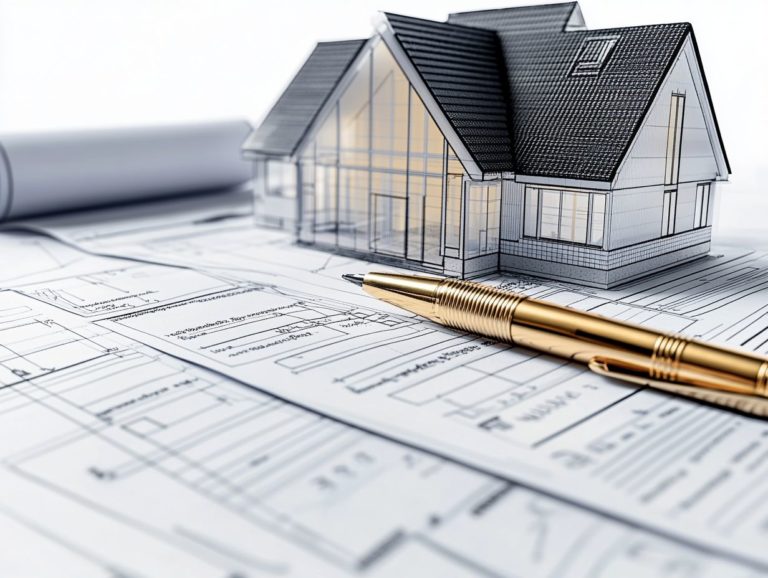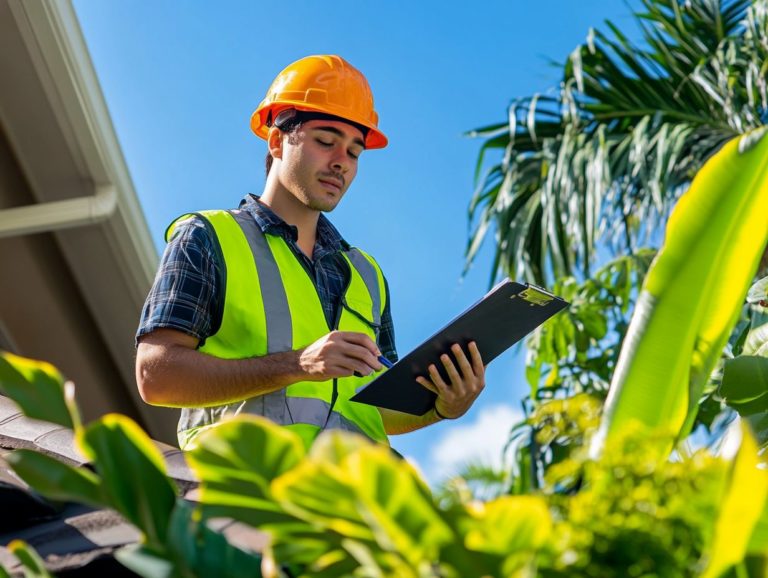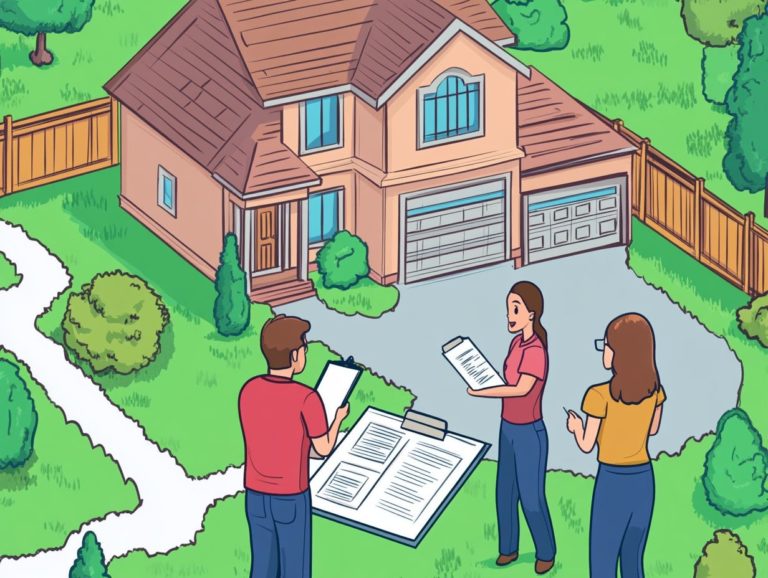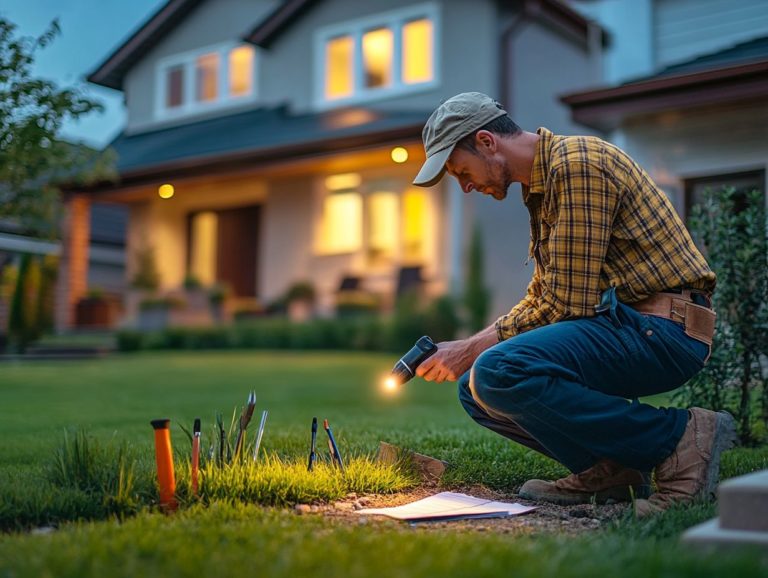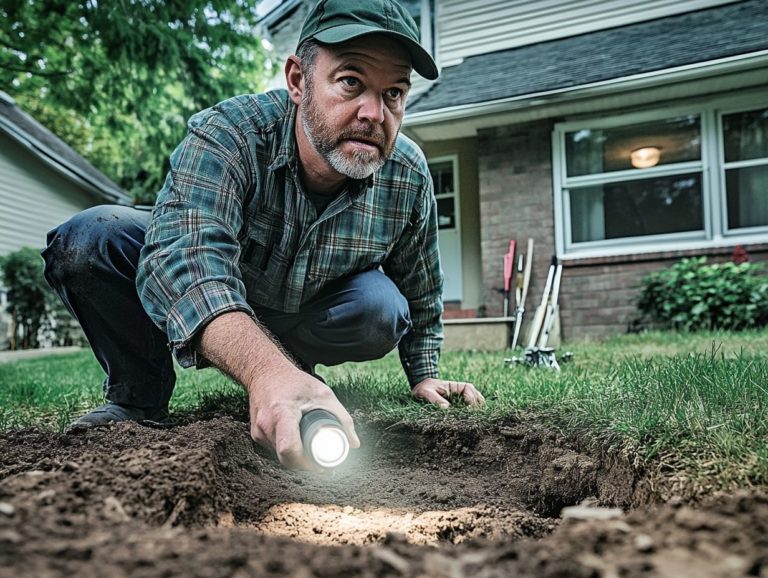The Importance of Home Inspections for Property Investors
Investing in property? Knowledge is your best ally! A home inspection is a must-have tool that can save you from costly surprises.
Grasping what a home inspection covers and recognizing its importance for investors can spare you from unexpected expenses down the line.
From revealing common structural, electrical, and plumbing issues to selecting the right inspector, this guide is designed to enhance the value of your home inspection experience.
Immerse yourself in this information to ensure your investment is a wise one!
Contents
- Key Takeaways:
- What is a Home Inspection?
- Why Home Inspections are Important for Property Investors
- What to Expect During a Home Inspection
- Common Issues Found During Home Inspections
- How to Choose a Qualified Home Inspector
- Tips for Maximizing the Value of a Home Inspection
- Frequently Asked Questions
- Understanding Home Inspections
- What is the importance of home inspections for property investors?
- How do home inspections benefit property investors?
- When is the best time to schedule a home inspection as a property investor?
- Can property investors perform their own home inspections?
- What are some common issues that can be discovered during a home inspection?
- Are there any potential risks for property investors who skip home inspections?
Key Takeaways:
- Home inspections provide valuable information on the condition of a property, helping investors make informed decisions and avoid costly surprises.
- Investors can benefit from home inspections by identifying potential issues and negotiating repairs or price adjustments before finalizing a purchase.
- To get the most out of a home inspection, investors should thoroughly research and carefully choose a qualified, experienced inspector and actively participate in the process.

What is a Home Inspection?
A home inspection is a detailed check to see the property’s condition, carried out by a licensed inspector. This process uncovers potential issues regarding structural integrity, electrical systems, plumbing, and safety.
This essential process provides both home buyers and sellers with valuable information about the property’s overall condition. With this information, you can make informed decisions about your real estate investments and negotiate repairs with confidence.
Definition and Purpose
A home inspection is a systematic check designed to uncover potential issues that might escape the notice of the untrained eye.
For those contemplating an investment property, a home inspection provides valuable information that underscores the importance of home inspections for real estate transactions and can significantly influence your buying and selling decisions.
By revealing hidden problems like structural flaws or outdated systems this process enables you to negotiate with confidence.
It also helps determine the property’s true value, safeguards your investments, and fosters transparency throughout your real estate journey.
Why Home Inspections are Important for Property Investors
Home inspections are essential for you as a property investor. They offer valuable information on the condition of your investment properties, helping you assess potential risks and make informed financial planning decisions for future endeavors. Understanding the importance of home inspections in real estate can greatly enhance your investment strategy.
By gaining a clear understanding of the property’s condition, you can evaluate repair costs accurately and significantly enhance your negotiating power when it comes to purchasing real estate.
Benefits for Investors
For property investors like yourself, conducting a home inspection offers a wealth of benefits:
- Enhanced financial planning.
- A precise assessment of repair costs.
- A bolstered negotiating position during property transactions.
A thorough home inspection uncovers hidden issues that may evade immediate detection, such as lurking mold or structural weaknesses, ultimately shielding you from unexpected expenses down the line.
This proactive stance significantly informs your renovation plans, enabling you to pinpoint developments that genuinely elevate the property’s value.
By understanding the condition of a home, you enable yourself to make informed investment decisions, ensuring that your potential return aligns seamlessly with your financial objectives. This highlights the importance of thorough home inspections.
With this comprehensive insight at your disposal, you can approach negotiations with unwavering confidence, using your findings to secure more favorable terms or enticing incentives.
What to Expect During a Home Inspection
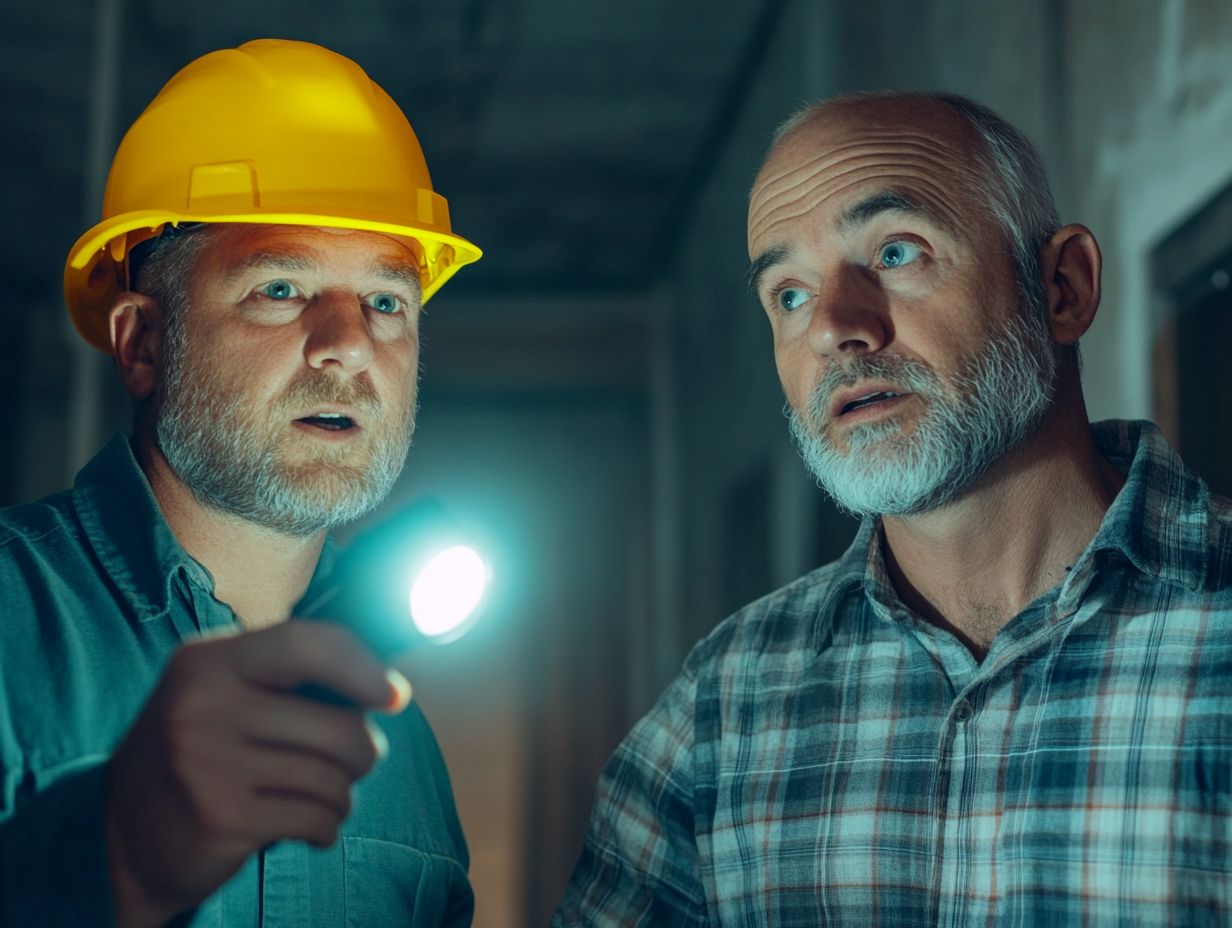
During a home inspection, you can anticipate a meticulous examination of the property, carried out by seasoned home inspectors.
They will assess various systems heating, ventilation, and air conditioning (HVAC), plumbing, and roofing looking for safety hazards or concealed issues that could impact the property s value.
This thorough inspection is vital for making the best investment decisions!
Don’t wait! Schedule your home inspection today or consult an expert for more insights.
Step by Step Process
The step-by-step process of a home inspection involves a careful examination of various elements within the property. This includes structural integrity, plumbing, electrical systems, and safety features.
Each aspect is carefully assessed to uncover potential issues before you finalize a purchase. For instance, when evaluating structural integrity, you ll want to examine the foundation, walls, and roof for any signs of wear or damage, as these factors can significantly influence the property’s longevity.
During plumbing inspections, attention turns to the condition of pipes, drains, and the water heater. This ensures everything is in optimal working order to help you avoid costly repairs down the line.
Electrical systems are thoroughly scrutinized for safety hazards, such as exposed wiring or outdated circuit breakers. Safety features such as smoke detectors and handrails are also inspected to ensure the well-being of all residents.
Every step in this detailed process is crucial for providing a comprehensive evaluation, ultimately enabling you to make informed decisions as a potential buyer. This thorough assessment helps you avoid costly surprises when you make your purchase!
Common Issues Found During Home Inspections
Home inspections frequently reveal a variety of common issues, such as structural deficiencies, electrical system failures, plumbing complications, and safety hazards like mold growth and pest infestations. These concerns can affect the property’s value.
By identifying these hidden problems early on, you help yourself as a buyer or seller manage repair costs and negotiate repairs with confidence.
Structural, Electrical, and Plumbing Concerns
Common structural, electrical, and plumbing concerns you might encounter during a home inspection include foundation issues, outdated wiring, and leaky pipes. If you don’t address these promptly, you could be staring down the barrel of significant repair costs.
Take, for instance, a home with foundation cracks. Not only does this threaten the structural integrity of the building, but it could also scare off potential buyers, ultimately lowering its market value.
Outdated wiring means the electrical system is old and may not meet current safety standards, which could lead to hazards. And those leaky pipes? They can lead to water damage and mold growth, which only accelerates structural deterioration and invites expensive remediation.
Each of these issues signals immediate repair needs and can sow doubt in a buyer s mind about the overall upkeep of the property. In today s competitive housing market, that can significantly impact your property s appeal.
How to Choose a Qualified Home Inspector
Selecting a qualified home inspector is essential for guaranteeing a thorough examination and obtaining a detailed report that truly reflects the property’s condition. As a prospective buyer, you should prioritize licensed inspectors with relevant certifications and a solid reputation in the real estate community.
These attributes assure you of a meticulous inspection and bolster your negotiating power when it comes to addressing any property concerns. Act now to ensure you choose the best inspector.
Factors to Consider
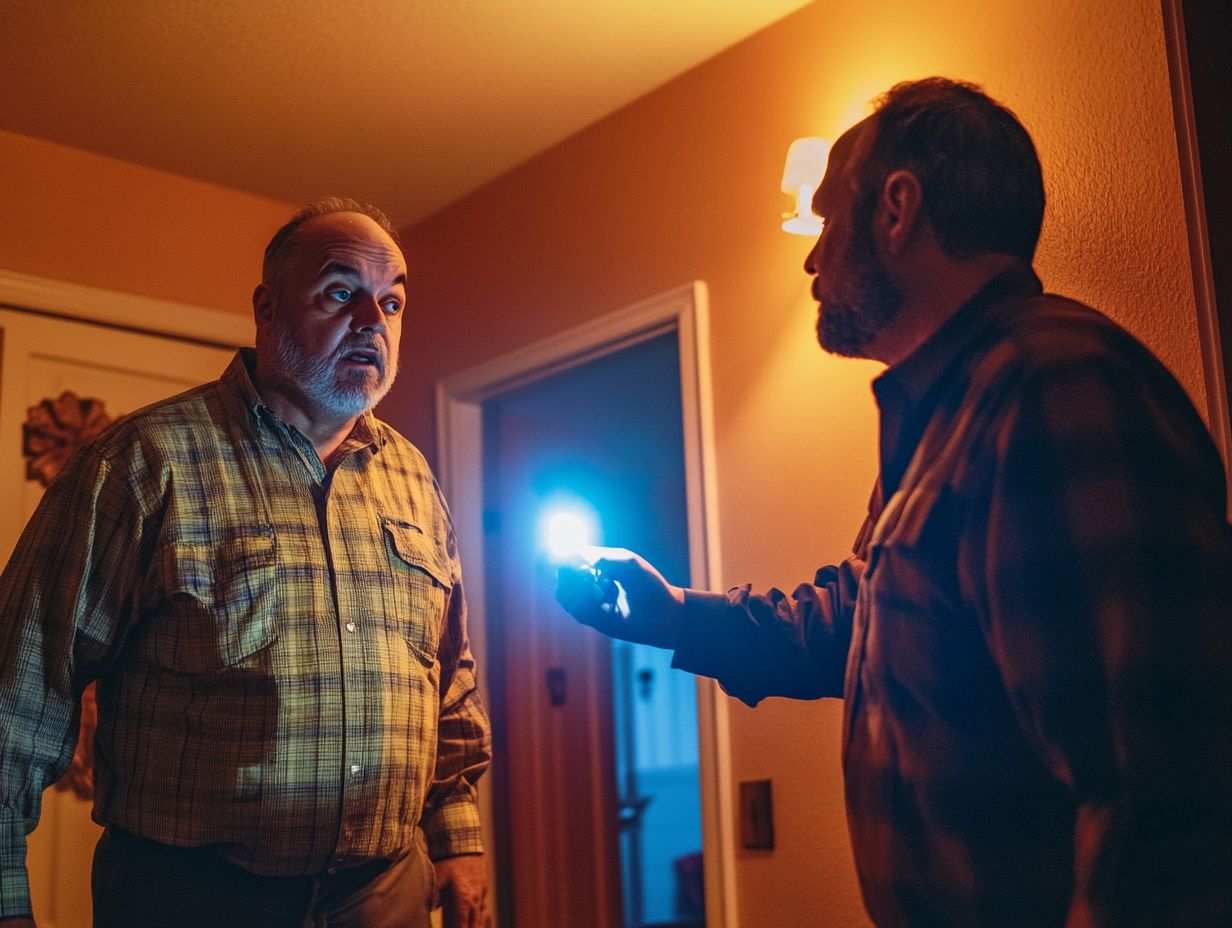
When you re selecting a home inspector, there are several key factors you should keep in mind:
- Qualifications
- Licensure
- Certifications
- Experience in performing thorough inspections
It s essential to evaluate their familiarity with the specific type of property you re considering be it a single-family home, a condo, or a multi-unit building. A solid track record in the local real estate market can significantly enhance the inspector’s insight into potential issues that might be unique to the area.
You ll also want to ask about the inspector s insurance coverage, particularly errors and omissions, to ensure you re adequately protected. Exploring client testimonials and seeking recommendations can give you a clearer picture of the inspector s reputation and reliability.
In the end, choosing an inspector who possesses a comprehensive understanding of both the technical and practical aspects of home inspections will help you mitigate potential future risks.
Tips for Maximizing the Value of a Home Inspection
To truly maximize the value of a home inspection, you should actively engage in the process. Ask insightful questions and look closely at the inspection report to pinpoint potential maintenance tasks and budget for necessary repairs or renovations.
This proactive approach not only sharpens your investment decisions but also helps you create a clear renovation plan that aligns with your vision for the home.
What to Look For and Ask About
During a home inspection, it s essential to know what to look for and to ask the right questions about key issues, such as safety hazards, repair costs, and potential renovations that could enhance the property’s marketability.
Take the time to carefully examine the condition of the roof, plumbing, electrical systems, and foundational stability. These elements significantly influence your long-term enjoyment of the home and the return on your investment.
Consider inquiring about previous repairs, warranty coverage, and maintenance history. These discussions can provide valuable insights into potential future expenses that might arise.
Talk to the inspector about environmental concerns and local building codes. By concentrating on these critical areas and asking thoughtful questions, you can make well-informed decisions that align with your budget and future plans.
Frequently Asked Questions
Understanding Home Inspections
What is the importance of home inspections for property investors?
Home inspections are a must for property investors! They provide a comprehensive evaluation of the property’s condition and can uncover any potential issues that may affect its value or pose safety hazards. Understanding the importance of home inspections for property investors is crucial for making informed investment decisions and avoiding costly surprises down the line.
How do home inspections benefit property investors?
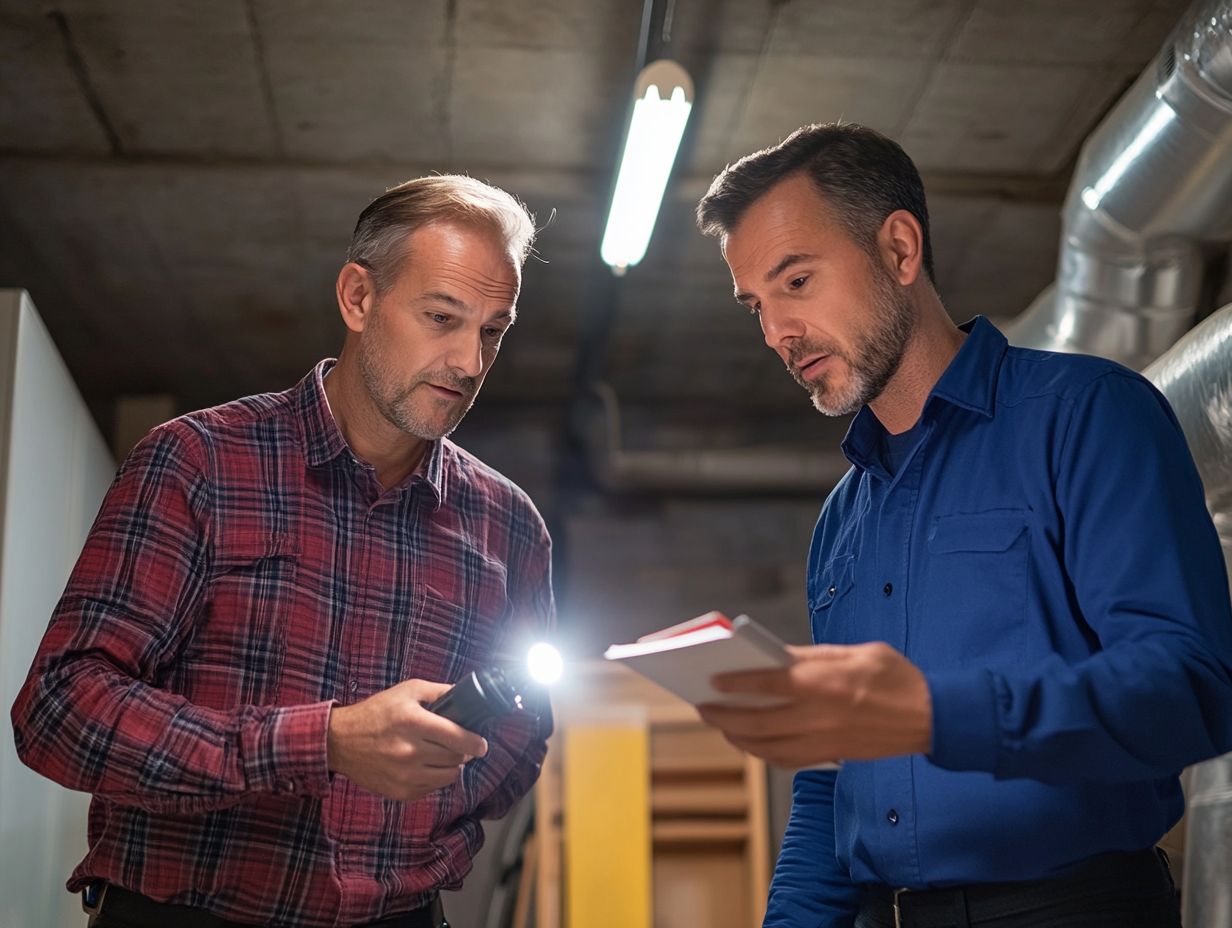
Home inspections provide property investors with a detailed report of the property’s overall condition, including structural integrity, electrical, plumbing, and roofing systems. Understanding the importance of home inspections in real estate deals can help investors negotiate a fair price, plan for future repairs and renovations, and ensure the property is a sound investment.
When is the best time to schedule a home inspection as a property investor?
The best time to schedule a home inspection is during the due diligence period, before finalizing the purchase of a property. This allows investors to understand the importance of pre-purchase home inspections and include any necessary repairs or potential issues into their budget, as well as negotiate with the seller if needed.
Can property investors perform their own home inspections?
While property investors may have some knowledge of home repair and maintenance, it is not recommended for them to perform their own home inspections. Understanding the importance of home inspections is crucial, as professional inspectors have specialized training, experience, and tools to thoroughly assess a property’s condition and provide an unbiased report.
What are some common issues that can be discovered during a home inspection?
Some common issues that may be discovered during a home inspection include structural damage, faulty wiring or plumbing, roof leaks, mold or pest infestations, and safety hazards such as radon or carbon monoxide. These issues can greatly impact the value and safety of the property.
Are there any potential risks for property investors who skip home inspections?
Yes, there are potential risks for property investors who skip home inspections. Without a thorough inspection, investors may unknowingly purchase a property with significant hidden issues, leading to unexpected expenses and potentially devaluing the property. Understanding the importance of home inspections in property sales is always recommended before investing in a property.
Ready to schedule your inspection? Don’t wait!

